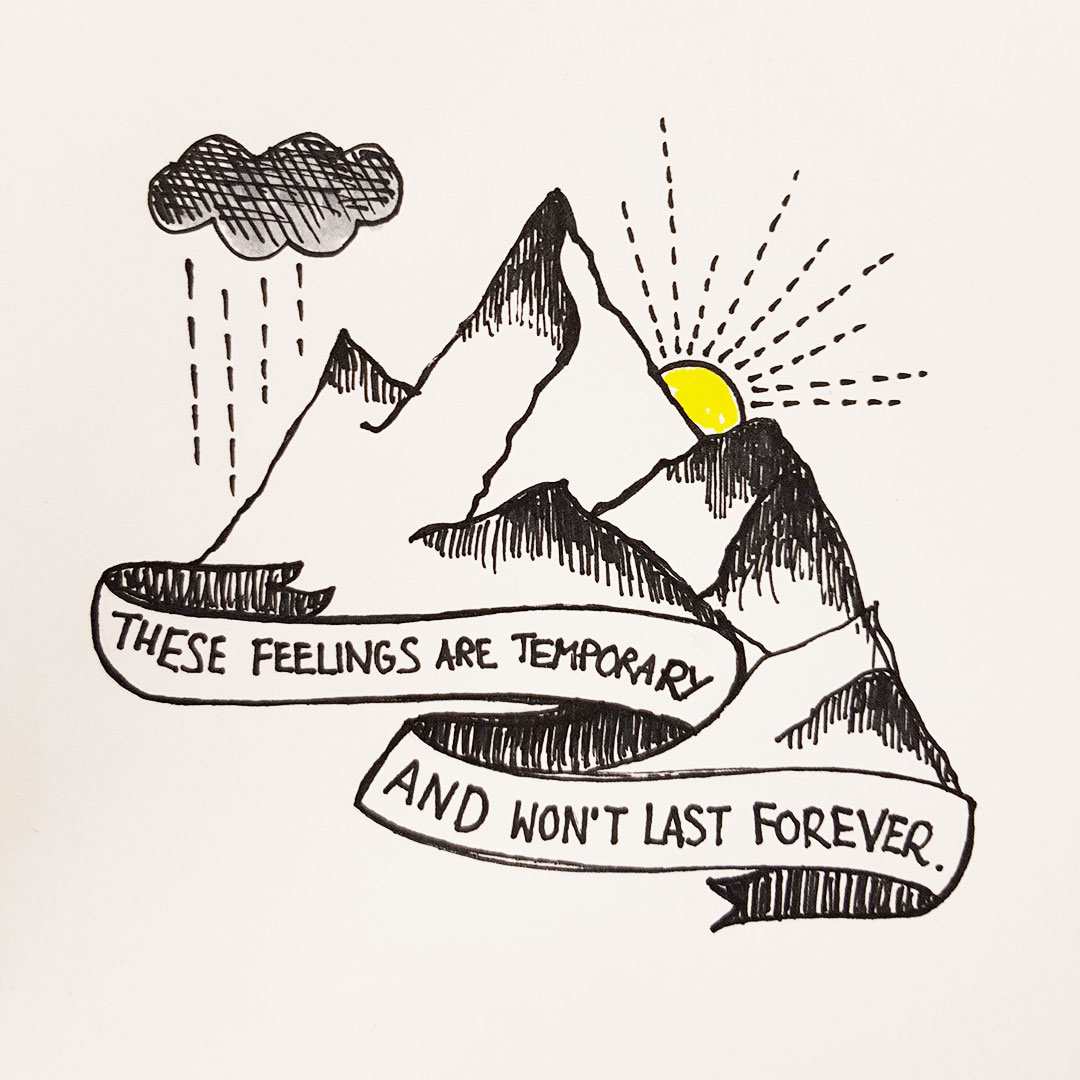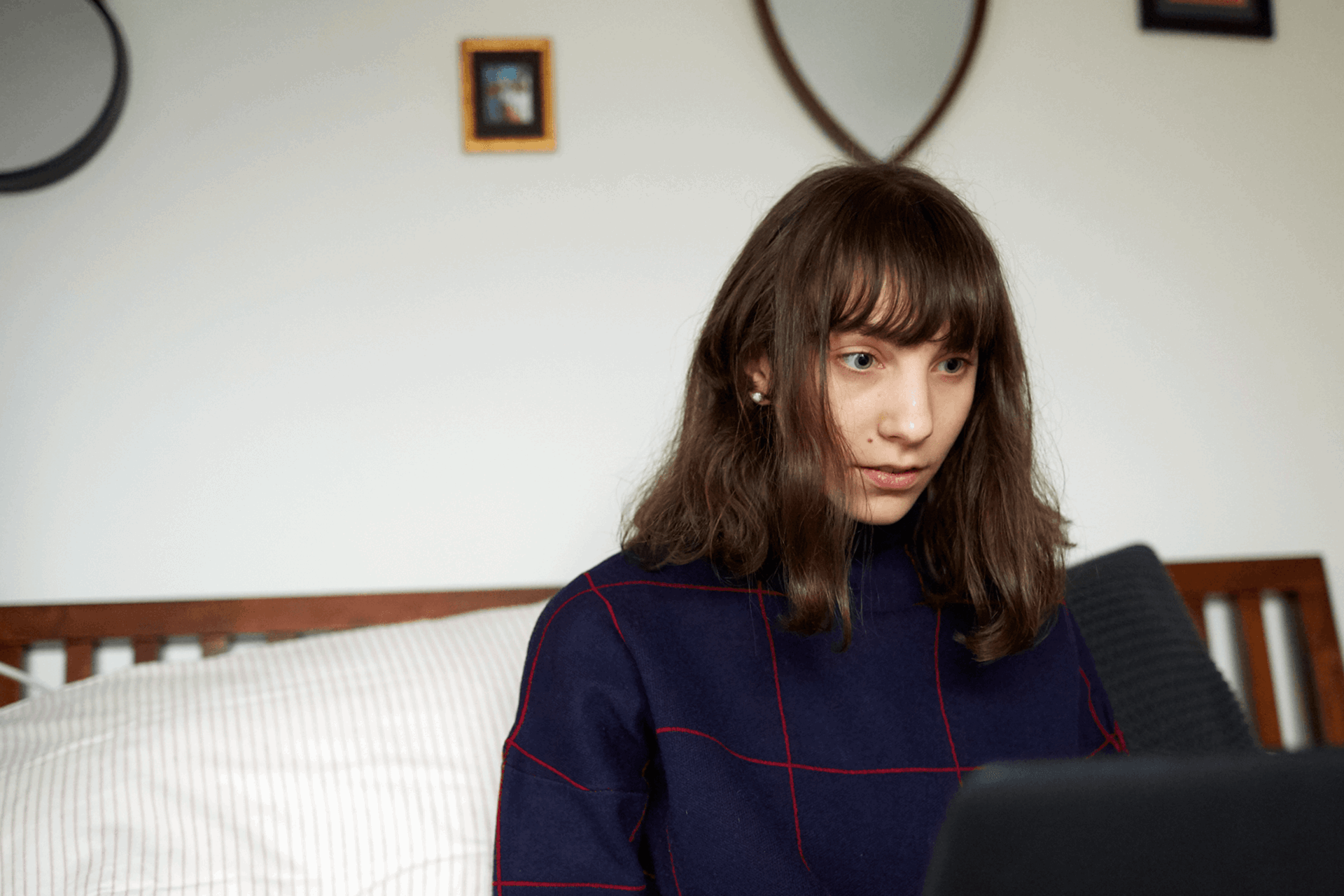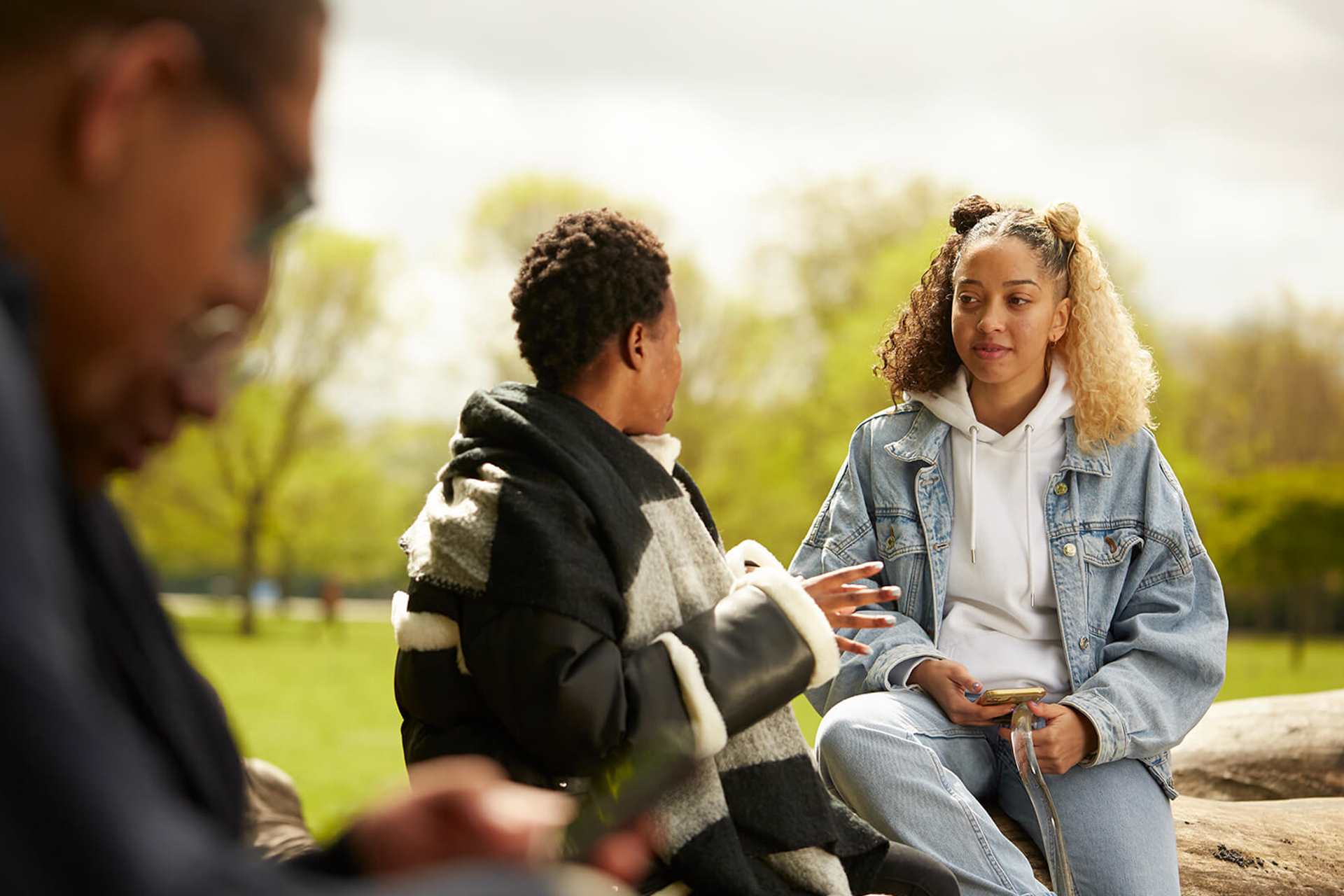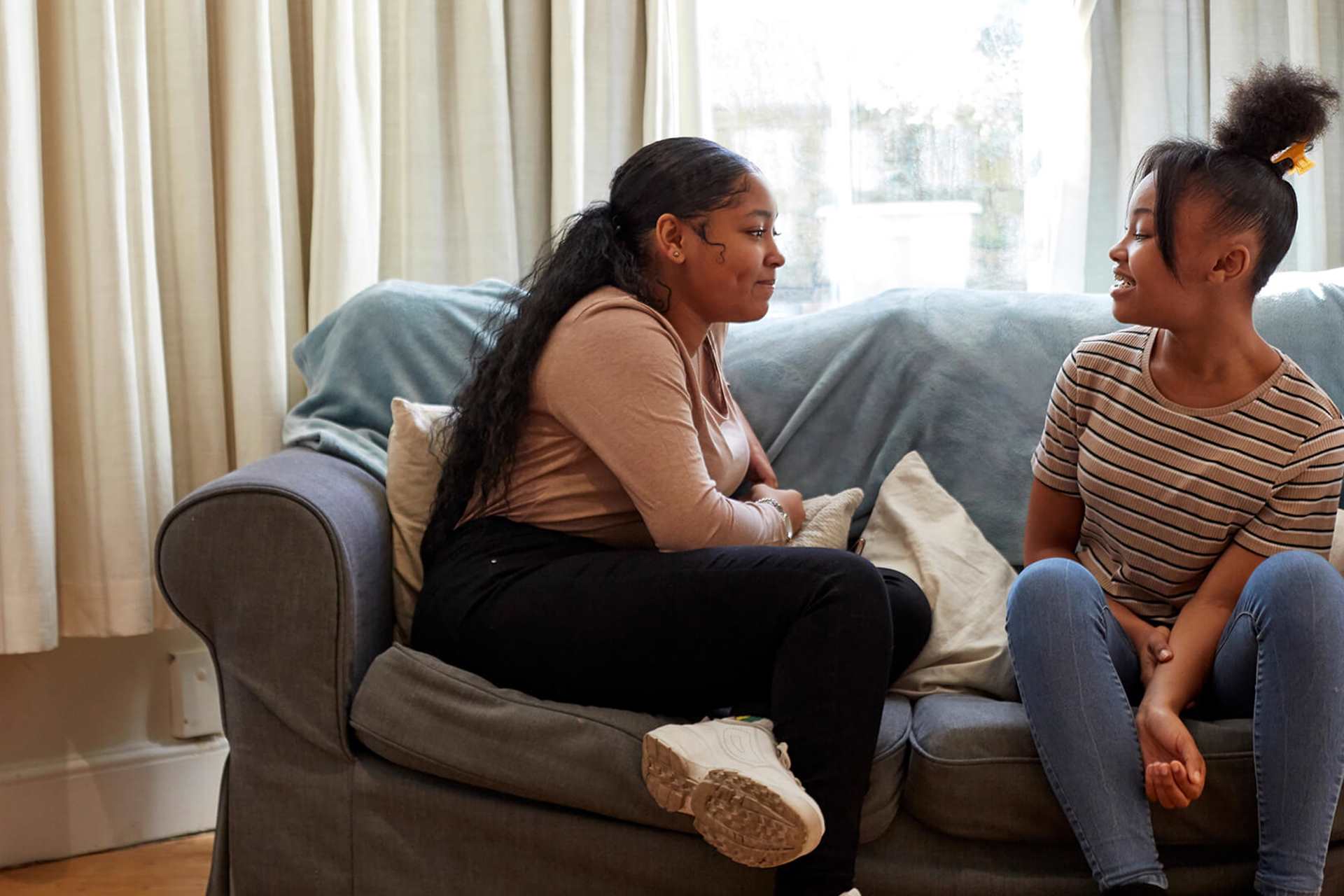Topics mentioned: disability and mental health, anxiety, OCD, self-esteem, down and unable to cope
About: Laura, 21, reflects on one year of living with a chronic illness, the impact on her mental health, and how finding community gave her hope for the future.
Chronic illness came out of nowhere and completely changed my life. For the first time, I had no idea how I would cope.
You hear stories about people’s lives changing in an instant, in books, on television and in the news. But, until it actually happens to you, they’re just that - stories. They’re people you can offer sympathy to in passing and feel a little bit glad, deep down, that it’s them and not you.
Their journeys might stick with you, or linger on your mind, but it’s difficult to understand until it happens to you, and suddenly everything feels unstable beneath your feet, like nothing will ever be the same again.
That’s how it felt when it happened to me.
I also felt proud, because I’d managed a whole year - I’d really done it.
Chronic illness came out of nowhere and completely changed my life. For the first time, I had no idea how I would cope and the future I’d mapped out for myself had smudged so much that I couldn’t even recognise it anymore.
So, when I realised recently that it was the one year anniversary of the incident that prompted medical investigation and led to my physical health diagnoses, I felt surprised. I felt sad, of course, that the time had gone by so quickly yet so slowly with no real answers.
But I also felt proud, because I’d managed a whole year - I’d really done it.
The mental health challenges of chronic illness
There are so many mental health challenges that come with chronic illness. The way your life changes in ways that nobody can prepare you for, and the grief that it comes with, can be devastating.

For me, my life was going brilliantly at the time. I’ve had anxiety and OCD since I was about 9 years old, but I was in a relatively good place mentally. I had just moved away to university and, having grown up as an athlete, I was so excited to get involved in the sports scene there, especially after all the work I’d done to heal my relationships with my sports and rediscover the enjoyment of them.
Within a month, I’d earned myself a place on the cross country team and the equestrian team, as well as dancing with the advanced ballet group. It certainly wasn’t lost on me that things were going excellently in my life and I felt genuinely capable and independent, which was new to me.
I couldn’t understand why this was happening to me or what I’d done wrong.
The moment when everything changed
I had my first tachycardic episode, which is where your heart suddenly beats faster than normal, during a gentle morning jog. I tried to brush it off and just keep going through the discomfort.
These experiences gradually started to become more frequent, though, and much harder to ignore. By the time I was sitting in front of a doctor, my mind was on overdrive with anxiety and catastrophic thoughts and, I’ll admit, quite a bit of self-loathing.
I couldn’t understand why this was happening to me or what I’d done wrong. I would search my brain for hours trying to dredge up anything I could’ve possibly done that could give the universe a reason to punish me like this, but I found nothing. That’s when the hopelessness started to set in.
It needs to be acknowledged how hard this can be on someone’s mental health, which is sometimes forgotten when the focus is entirely on what’s physically wrong.
I was put on a strict exercise ban with an urgent cardiology referral to my name. I waited and tried to figure out how to fill all the free time I now had. I feel like this is the part nobody prepares you for.
As a society, we romanticise free time but, when I suddenly had an endless supply of it, having left university and returned home, all I wanted was for it to stop.
My anxiety and OCD came back in full force and I’m still taking steps now to deal with the trauma that came with this whole ordeal.

Instagram artwork by @youngmindsuk. Mountains and a yellow sun with text wrapped around that reads 'These Feelings Are Temporary And Won't Last Forever'.
However, one of the other challenges I faced was actually accepting that, sometimes, I need that free time, purely to rest. I still find it difficult to listen to my body and accept that it needs more time now than it perhaps did before.
I have to be gentle with myself but I’m not always very good at it. This lack of acceptance is something that has followed me around since the beginning, and I’m still coming to terms with the fact that my conditions are chronic and won’t go away.
I feel like it needs to be acknowledged how hard this can be on someone’s mental health, which is sometimes forgotten when the focus is entirely on what’s physically wrong. My anxiety and OCD got significantly worse as a result of developing chronic illness.
However, this ordeal can also bring with it entirely new mental health challenges, such as the depressive feelings I was experiencing for the first time in my life. It was scary and overwhelming, feeling these new things on top of everything else, and I didn’t know what to do.
Grieving your past life doesn’t make you weak, and you don’t have to ‘move on’ in the way others might expect.
Building a new future
A year ago, I wasn’t sure I could see a future for myself, living with these new challenges every single day. I used to say I wasn’t brave enough to handle it, but I’m still here. I’m figuring things out and working to adapt the activities I love in a way that suits both my physical and mental health needs, as well as discovering new hobbies.
A certain level of acceptance comes with time, but I’ve also learnt that it’s okay to be upset, distressed or even angry about what happened and how suddenly things changed. Grieving your past life doesn’t make you weak, and you don’t have to ‘move on’ in the way others might expect if that’s not what’s right for you at the moment.
For me, finding a community of people in similar positions has been instrumental in my healing journey. My mental health has improved significantly since making these connections and realising that I’m not alone.
It’s vital that you move at a pace that feels right for you, while remembering you are not alone at any point in this journey.
I would encourage anyone with a chronic illness to reach out to people in whatever way they feel comfortable. That could be finding a new community of people who understand what you’re going through, or confiding in your existing friends and family around you.
This process is never going to be easy, but it’s a lot less lonely when you’ve got people around to support you. Acknowledging how you’re feeling and giving yourself time to feel those emotions is so important.
Pushing for acceptance when you’re not ready is never going to work and I think it’s vital that you move at a pace that feels right for you, while remembering you are not alone at any point in this journey.
I used to say I wasn’t brave enough to handle it, but I’m still here.
More information and advice
We have tips and advice to help you find the support you need. Take a look at our guides.
Where to get help
However you're feeling, there are people who can help you if you are struggling. Here are some services that can support you.
-
CALM (Campaign Against Living Miserably)
Provides support to anyone aged 16+ who is feeling down and needs to talk or find information.
Free webchat service available.
Read information about the helpline and how it works.
- Opening times:
- 5pm - midnight, 365 days a year






